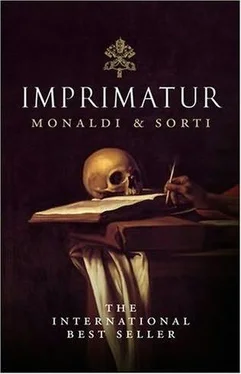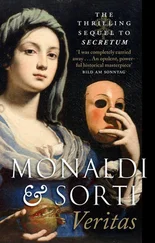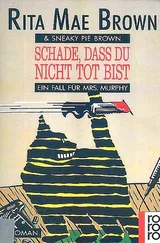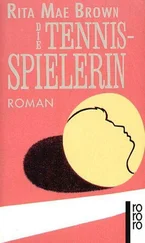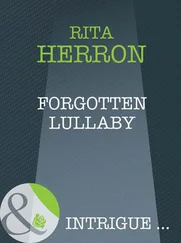Rita Monaldi - Imprimatur
Здесь есть возможность читать онлайн «Rita Monaldi - Imprimatur» весь текст электронной книги совершенно бесплатно (целиком полную версию без сокращений). В некоторых случаях можно слушать аудио, скачать через торрент в формате fb2 и присутствует краткое содержание. Жанр: Исторический детектив, на английском языке. Описание произведения, (предисловие) а так же отзывы посетителей доступны на портале библиотеки ЛибКат.
- Название:Imprimatur
- Автор:
- Жанр:
- Год:неизвестен
- ISBN:нет данных
- Рейтинг книги:5 / 5. Голосов: 1
-
Избранное:Добавить в избранное
- Отзывы:
-
Ваша оценка:
- 100
- 1
- 2
- 3
- 4
- 5
Imprimatur: краткое содержание, описание и аннотация
Предлагаем к чтению аннотацию, описание, краткое содержание или предисловие (зависит от того, что написал сам автор книги «Imprimatur»). Если вы не нашли необходимую информацию о книге — напишите в комментариях, мы постараемся отыскать её.
Imprimatur — читать онлайн бесплатно полную книгу (весь текст) целиком
Ниже представлен текст книги, разбитый по страницам. Система сохранения места последней прочитанной страницы, позволяет с удобством читать онлайн бесплатно книгу «Imprimatur», без необходимости каждый раз заново искать на чём Вы остановились. Поставьте закладку, и сможете в любой момент перейти на страницу, на которой закончили чтение.
Интервал:
Закладка:
Besides all these genuine manifestations of joy, in the news which was circulating among the populace and which reached us from the street, there were two circumstances which I found somewhat unexpected and worthy of reflection.
First, from one of the watchmen (who were continuing to keep an eye on the inn, in the absence of further orders) we came to know that the Christian victory had been aided by an inexplicable series of errors on the part of the Turks.
The armies of Kara Mustapha had, in fact, by means of the novel technique of mines and trenches, reduced the city walls of Vienna and, in the opinion of the victors themselves, could unquestionably have carried out a concentrated and victorious assault long before the arrival of King Jan Sobieski's reinforcements. Yet, instead of rapidly unleashing the decisive attack, Kara Mustapha had, quite inexplicably, made no move, wasting several precious days. Nor had the Turks taken the trouble to occupy the heights of the Kahlenberg, which would have given them a decisive tactical advantage. Not only that: they had neglected to confront the Christian reinforcements before they crossed the Danube, thus allowing them to draw irremediably close to the beleaguered city.
Why all this had happened, no one could tell. It was as though the Turks had been waiting for something… Something which made them feel sure of victory. But, what could that be?
Secondly, another strange circumstance: the outbreak of the plague, which had been ravaging the city for months, suddenly died out, for no apparent reason.
To the victors, this series of miracles was seen as a sign from divine providence, the same benign providence which had to the last sustained the desperate forces of the besieged and Jan Sobieski's liberating troops.
The culmination of the festivities in Rome took place on the 25th day; of that, I shall recount more later, since my concern here is to tell of other important facts which came to my acquaintance during those days of sequestration.
The strange manner in which the plague in Vienna had suddenly been extinguished gave me no little cause for reflection. After terrorising the besieged even more than the Ottoman foe could, the pestilence had rapidly and mysteriously petered out. This factor had been decisive: had the infection persisted and spread among the population ofVienna, the Turks would certainly have prevailed without the slightest difficulty.
It was impossible not to consider that news in the light of what Atto and I had so laboriously uncovered or deduced, all of which I strove to sum up in my mind. Louis XIV hoped for a Turkish victory in Vienna, the better to carve up Europe with the Infidels. In order to achieve his dreams of dominion, the Sun King counted upon using the infectious principle of the secretum pestis, in other words the secretum morbi, which he had at last succeeded in extracting from Fouquet. At the same time, however, the consort of the Most Christian King, Maria Teresa, was striving to achieve a diametrically opposed design. Proudly attached to the destiny of the House of Habsburg which occupied the imperial throne and of which she herself was a scion, the Queen of France strove secretly to impede her husband's plans. Indeed, according to the theory advanced by Atto, Fouquet had succeeded in delivering to Maria Teresa, through Lauzun and Mademoiselle (both of whom detested the Sovereign no less than Maria Teresa herself), the only antidote capable of countering the secret weapon of the plague: the secretum vitae, that is, the rondeau with which Devize had beguiled us during those days at the Donzello, and which seemed even to have cured Bedfordi.
Nor was it by chance that the antidote should have been in the hands of Devize; the rondeau, although probably composed by Kircher in its original, crude form, had been perfected and consigned to paper by the guitarist Francesco Corbetta, a past master of the art of enciphering secret messages in musical notes.
Even thus simplified, the picture was as hard on the intellect as on the memory. Yet, if the method which Atto Melani had taught me held water (to act on suppositions, where one has not the benefit of knowledge), then everything fell into place. One must use one's powers of reasoning persistently in order to uncover what was needed to explain patent absurdities.
I therefore asked myself: if Louis XIV had wished to deliver the coup de grace to the dreaded Habsburgs, who flanked him on either side in Austria and in Spain, and above all to the hated Emperor Leopold, where would he have unleashed the plague? Why, in Vienna; the answer astounded me with its simplicity.
Was that not the decisive battle for the fate of Christianity? And was I not aware, ever since I had overheard the conversation between Brenozzi and Stilone Priaso, that the Most Christian King was secretly playing on the side of the Turks in order to catch the Empire in the teeth of an infernal trap set between East and West?
Nor was that all. Was it not true that there had for months been an outbreak of the plague in Vienna, which had spread apprehension amongst all the heroic, beleaguered warriors? And was it not also true that the infection had died out, or had been mysteriously tamed by some arcane invisible agent, thus saving the city and all Western Europe?
Although deeply immersed in such meditations, I myself found it difficult to accept the logical conclusions to which they gave rise: the plague in Vienna had been unleashed by agents of Louis XIV or by anonymous cut-throats in their employ, thus putting into effect the occult science of the secretum morbi. That was why the Turks had not moved for days and days, despite the fact that Vienna was in their grasp: they were awaiting the dreaded effects of the infection sent by their secret ally, the French sovereign.
The infamous sabotage had, however, encountered no less powerful adverse forces: the emissaries of Maria Teresa had arrived in Vienna in time to dispel the threat, activating the secretum vitae and thus overcoming the infection. How this was done, I would never know. What is, however, certain is that the vain hesitations of the Turkish army were to cost Kara Mustapha his head.
This summary, so overcrowded with events, risked seeming too fanciful, indeed almost fantastical. Did not all the interweaving of the affairs of Kircher and Fouquet, Maria Teresa and Louis XIV Lauzun and Mademoiselle, Corbetta and Devize also smack of folly? Yet, I had spent entire nights in Atto Melani's company reconstructing, piece by piece, in a sort of divine madness, all that senseless intrigue, which had become more real for me than the life which continued outside the walls of the Donzello.
My imagination was peopled by the shadowy agents of the Sun King, intent upon spreading the pestilence throughout poor Vienna when the city was already in extremis, on the other side, the defenders, the shadow-players of Maria Teresa. All of them were investigating secret formulae concealed in the pentagrams of Kircher and Corbetta, agitating retorts and alembics and other obscure instruments (like those seen on Dulcibeni's island) and reciting incomprehensible hermetic phrases in some abandoned cloister. Thereafter, some would have poisoned-and others cleansed-waters, orchards, streets. In the invisible struggle between the secretum morbi and the secretum vitae the vital principle had in the end triumphed: the same one which had enthralled my heart and my mind as I listened to the rondeau played on Devize's guitar.
From the latter, of course, I would not be able to draw so much as a syllable. Yet his role was almost completely clear, and so were the images which it conjured up in my mind: Devize receives from the Queen the original copy of the "Barricades Mysterieuses"; he is then ordered to go to Italy-to Naples-there to seek out an aged traveller with a double identity… In Naples, he finds Fouquet, already in Dulcibeni's company. Perhaps he shows the old Superintendent the rondeau which, years before, he had placed in the trusted hands of Lauzun for delivery to the Queen. But Fouquet is blind; he will have taken those sheets of paper in his bony hands, caressed and recognised them. Devize will then have played the rondeau, and the old man's last uncertainties will have vanished amidst tears of emotion: the Queen has succeeded; the secretum vitae is in good hands, Europe will not succumb to the madness of a single sovereign. And she, before taking her leave of this earth, has, by the hand of Devize, obtained this last reassurance.
Читать дальшеИнтервал:
Закладка:
Похожие книги на «Imprimatur»
Представляем Вашему вниманию похожие книги на «Imprimatur» списком для выбора. Мы отобрали схожую по названию и смыслу литературу в надежде предоставить читателям больше вариантов отыскать новые, интересные, ещё непрочитанные произведения.
Обсуждение, отзывы о книге «Imprimatur» и просто собственные мнения читателей. Оставьте ваши комментарии, напишите, что Вы думаете о произведении, его смысле или главных героях. Укажите что конкретно понравилось, а что нет, и почему Вы так считаете.
